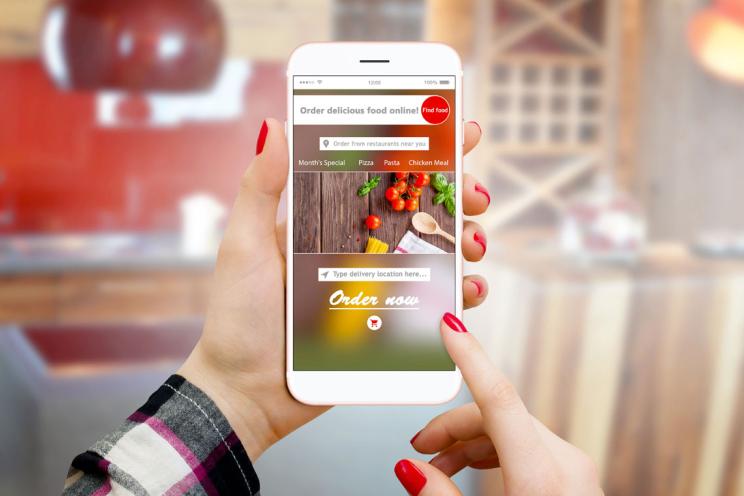
Enhance Operational Efficiency through POS Software Integration with CRM and Accounting Systems
In business, staying ahead often means optimizing operational processes to drive efficiency and productivity. You sure know that operational efficiency is not just a competitive advantage but a necessity for sustained growth.
One critical aspect of this optimization lies in integrating various software systems to streamline operations and enhance overall performance. Among the most impactful integrations is that of Point of Sale (POS) software with Customer Relationship Management (CRM) and Accounting Systems which stands out as a powerful strategy.
This fusion not only simplifies tasks but also offers you plenty of benefits for your business across diverse sectors driving efficiency, improving customer experiences, and optimizing financial processes.
What are the outcomes of integrating your POS software into different features?
The Power of Integration
Integration refers to the seamless connection between different software systems, allowing them to communicate and share data in real time. When it comes to POS, CRM, and Accounting Systems, integration enables you to synchronize essential functions, such as sales, customer data management, and financial transactions.
This cohesion brings you many advantages that take operational efficiency to new heights.
Seamless Data Flow
One of the primary advantages of integrating POS software with CRM and Accounting Systems is the seamless flow of data across all platforms. Traditionally, businesses have struggled with siloed data, leading to inefficiencies, errors, and missed opportunities.
With integration in place, sales data captured at the point of sale seamlessly feeds into CRM systems for instance, enabling a comprehensive view of customer interactions and behaviors.
This enriched customer data empowers businesses to tailor marketing efforts to create customized rewards programs and personalize customer experiences to increase loyalty and drive sales growth.
Streamlined Operations
Integration between POS, CRM, and Accounting Systems streamlines various operational processes, saving time and resources. For instance, sales data are automatically synchronized and recorded in accounting systems, ensuring accurate financial records, eliminating the need for manual data entry, and reducing the risk of errors.
This process accelerates the financial reporting process and provides real-time visibility into sales performance, inventory levels, and revenue trends. With a holistic view of operations, you will be able to make data-driven decisions, optimize inventory management, and identify areas for cost savings.
Enhanced Customer Experience
Integrating POS with CRM empowers businesses to gain deeper insights into customer behavior and preferences. With integrated POS and CRM systems, sales representatives have immediate access to customer information, including purchase history, preferences, and loyalty program details.
By capturing transaction data and customer interactions, businesses can create comprehensive profiles for each customer, enabling personalized marketing campaigns, and offering targeted promotions and tailored experiences. and addressing customer inquiries promptly.
The result? Increased customer satisfaction, loyalty, and repeat business ultimately driving revenue growth.
Real-Time Reporting and Analytics
Integrating POS, CRM, and Accounting Systems allows your business to generate comprehensive reports and analytics by combining sales data with customer information and financial data. This holistic view enables deeper insights into sales trends, customer behaviors, and financial performance.
With customizable dashboards and reporting tools, businesses can track key performance indicators (KPIs), measure the effectiveness of marketing campaigns, and identify growth opportunities. Moreover, advanced analytics capabilities, such as predictive modeling and forecasting to identify growth opportunities, empower businesses to make informed decisions and stay ahead of market trends to mitigate potential risks promptly.
Check this link for more insights about the benefits of the strategic use of analytics.
Inventory Management Optimization
US restaurants generate an estimated 22 to 33 billion pounds of food waste each year at restaurants and one of the main reasons is the oversized portions that could have been avoided. Hence, effective inventory management is critical for businesses to minimize stockouts, reduce excess inventory, and optimize cash flow. Integrating POS software with CRM and Accounting Systems provides real-time visibility into inventory levels and sales data.
This enables you to accurately forecast demand, reorder products promptly, maintain optimal stock levels prevent stockouts or overstock situations, and identify slow-moving items for targeted promotions or clearance. Moreover, integrated systems can automatically update inventory records across all platforms, preventing discrepancies and ensuring inventory accuracy.
Financial Accuracy and Compliance
Manual data entry and reconciliation processes are not only time-consuming but also prone to errors. By integrating POS software with accounting systems, you can automate financial processes, simplify tax preparation and auditing processes to ensure accuracy and compliance with regulatory requirements, manage transactions, track expenses, and generate financial reports with ease,
Sales transactions are automatically recorded in the accounting system, reducing the risk of discrepancies and improving financial transparency. This not only saves time for finance teams but also enhances the reliability of financial reporting.
Automation of Marketing Campaigns
Integrated systems enable your business to automate marketing campaigns based on customer data and purchase history. For example, businesses can set up automated email campaigns to send targeted promotions or follow-up messages to customers based on their recent purchases.
By leveraging customer segmentation and personalized messaging, you can increase engagement, drive sales, and foster long-term customer relationships. Automation also reduces manual effort and ensures consistent communication with your customers across multiple channels.
Seamless Omnichannel Experience
The revenue in the Online Food Delivery market is forecasted to reach US$1.22tn in 2024, meaning that customers choose different channels to order food or even get their groceries.
In this current omnichannel retail and restaurant environment, customers expect a seamless shopping experience across online and offline channels that are both popular. Integration between POS, CRM, and Accounting Systems enables you to deliver a unified experience by synchronizing data across all touchpoints.
Whether customers make purchases in-store, online, or via mobile devices, their interactions are seamlessly captured in the system. This allows you to offer services such as click-and-collect, omnichannel loyalty programs, and unified customer profiles, enhancing convenience and satisfaction for your customers.
Scalability and Flexibility
As businesses grow and evolve, scalability and flexibility become essential considerations. Integrated systems provide the scalability to accommodate growing transaction volumes, expanding product lines, and increasing customer bases.
Moreover, integration allows your business to easily add new functionalities or integrations as needed, ensuring adaptability to changing market demands and technological advancements. Whether it's adding new payment options, integrating with third-party applications, or expanding into new sales channels, integrated systems provide the flexibility to support business growth and innovation.
Competitive Differentiation
In the competitive hospitality and retail sectors, delivering exceptional customer experiences and operational efficiency is a key differentiator.
Integration between POS, CRM, and Accounting Systems allows you to differentiate yourselves by offering personalized services, streamlined processes, and data-driven insights.
Simply, leverage integrated systems to anticipate customer needs, optimize operations, and drive innovation, so you can gain a competitive edge and position yourselves as industry leaders.
The integration of POS software with CRM and Accounting Systems offers a multitude of advantages that go beyond operational efficiency. From enhanced reporting and automation to seamless omnichannel experiences and scalability, integrated systems empower your business to drive growth, improve customer relationships, and stay ahead of the competition.
Embrace this technology and benefit from its advancements instead of avoiding it if you want to thrive in this digital age.





